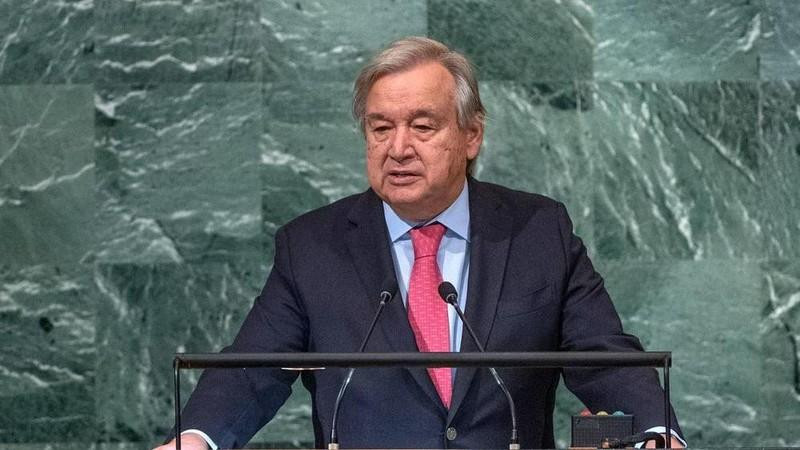The head of the world's largest universal multilateral international urged the international community to redouble efforts to put the world "back on track," warning that global development has reached a "decisive moment" as multiple overlapping crises are threatening the timely realisation of the SDGs.
Under the theme “The Moment of Sustainable Development Goals”, this year's UN Conference on Sustainable Development focused on assessing the progress made on the world roadmap towards the set goals.
Speaking at the conference, Secretary-General Guterres emphasised that conflicts and climate catastrophe, mistrust and division, poverty, inequality and discrimination, rising costs of food and energy, unemployment and declining incomes, massive displacement and dislocation, as well as the ongoing effects of a global pandemic are pushing the SDGs "further out of reach".
The UN chief said that young people and future generations are demanding action. "We cannot let them down. This is a definitive moment.", said Guterres. He said the world has a long "to-do list." "We need finance and investment from the public and private sectors. We need a reformed financial architecture that benefits developing countries, providing critical financing and debt relief," he said.
"This is the only sustainable pathway to address the obscene inequalities that exist in every country while ensuring that the world doesn't slide into a recession," the secretary-general said.
The realisation of the goals of ending poverty, protecting the planet, and ensuring that all people in each of the UN Member States enjoy peace and prosperity by 2030 is facing great challenges as the international community is facing a series of serious crises caused by the COVID-19 pandemic, conflict, and climate change.
The world's conflicts, which are driving millions of people to live in poverty and suffering, and a spiral of inequality are still affecting the recovery and development of many countries. Not to mention climate change also puts the world in a state of concern. Three urgent crises are related to the earth, namely climate change, biodiversity loss and pollution. In addition, the pandemic and conflict have caused prices to rise, purchasing power to decrease, and the risk of food insecurity to increase, while the threat of a global recession is also increasing.
According to United Nations statistics, the number of people affected by hunger globally rose to as high as 828 million in 2021. Nearly every indicator of the UN Sustainable Development Goals is off track at the halfway point for achieving them by 2030. However, progress can still be made in ending global poverty, reducing inequality and spurring economic growth, as well as tackling climate change, as we move towards the global goals for 2030.
As such, the Secretary-General of the United Nations is urging governments to invest as much as possible in health, education and public health, especially for people who have to flee and migrate, to ensure that people can overcome economic shocks and increase jobs, especially in the fields of digital and green energy.
Urgent action against climate change requires the world to gradually reduce its dependence on fossil fuels and accelerate the transition to renewable and clean energy, while support poor countries to join the transition.
Strengthening the resilience of developing countries to future crises is also seen as a key factor in achieving development goals, and is also the responsibility of rich countries. In that context, the United Nations has called for the promotion of multilateral cooperation to achieve achievements on the road to sustainable development.
















